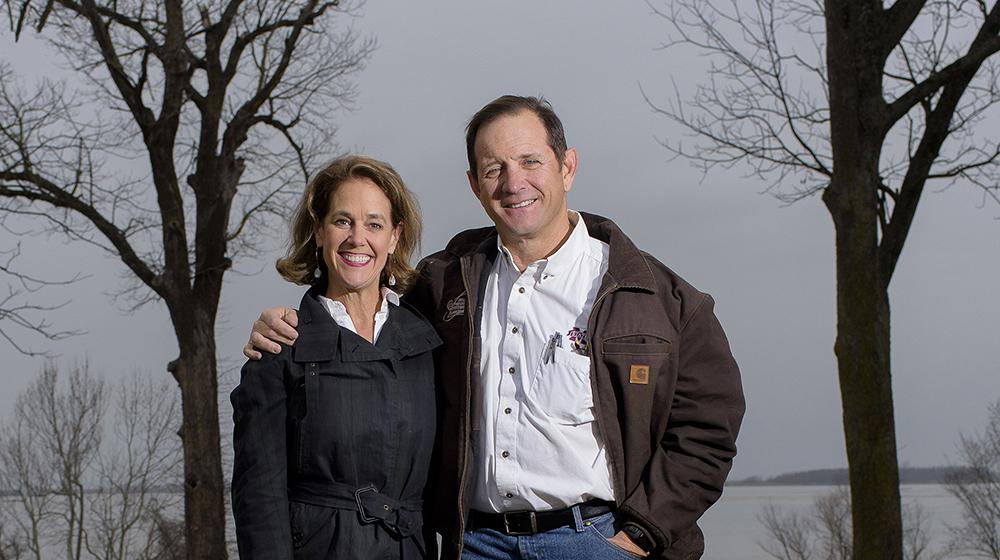Mississippi’s Gift to Farmers

John McKee has been attending the annual conference since 1986 in order to gain knowledge that cannot be found anywhere else.
Row crop producer uses Extension resources to manage farm
Story by Nathan Gregory · Photos by Kevin Hudson
John McKee refers to the Mississippi State University Row Crop Short Course as a “convention of rock stars.”
The row crop producer from Friars Point in Coahoma County has been attending the annual conference since he moved back home in 1986. That is when
McKee’s father handed him the reins of farming their land, which has been in the family since 1890.
The MSU Extension Service started the annual conference in 1983 as the MSU Cotton Short Course. When the program expanded to include all major row crops, attendance did the same. More than 700 producers went to the 3-day course in 2018.
Ask McKee why he keeps coming back and turns to Extension row crop specialists for advice during the growing season, and he will say their knowledge is unparalleled in the state.
“Extension is one of the greatest gifts Mississippi gives to its farmers,” he says. “When I have a question for any of the row crop specialists, they know what my problem is and how to fix it. They are uniquely qualified to answer my questions because of their local knowledge and willingness to work with producers individually and take time to develop a rapport with them.”
Extension has specialists specific to each row crop, along with area agronomists, weed and soil scientists, and agricultural economists. The “rock stars” McKee refers to include Dr. Darrin Dodds (cotton), Dr. Trent Irby (soybeans), Dr. Erick Larson (corn), and Dr. Bobby Golden (rice), plus entomologists Dr. Angus Catchot and Dr. Jeff Gore and plant pathologist Dr. Tom Allen.
“They’re like personal consultants we have for free, and they’re the very best you can possibly have,” McKee says.
That list is only a sampling of more than two dozen Extension and research personnel at MSU specializing in specific agricultural disciplines. Dodds, former cotton specialist and now head of the Department of Plant and Soil Sciences at MSU, said the goal of each specialist—and the short course—is to provide Mississippi producers and consultants timely, research-based information they can use to maintain profitability.
“As the row crop short course has evolved over the years, it has become synonymous with relevant information delivered in a way producers can understand and use at their farms,” Dodds explains. “John is one of many very successful growers who can be found at these events each year, and he consults MSU row crop specialists regularly when he’s seeking information or a second opinion.”
McKee’s wife, Nancy, works on the family farm with him and attends the short course each year, as well as several Delta field days and consultant meetings. As director of the Mississippi Small Business Development Center agriculture and rural development program, she finds the data and information offered at the short course and other Extension events useful in many ways.
One workshop she attended focused on common weeds that pose the greatest threat to Mississippi row crops and developments in weed control research.
“They took us through everything, A to Z, showed us data illustrating their research and conclusions, and, most importantly, how we could take that information home and apply it,” she says. “We have a lot of excellent farmers in the Delta, and I think one reason why is because they are taking advantage of what the Extension Service offers. If you’re in agriculture and Extension is not one of your primary resources, you’re short-changing yourself.”
John McKee also mentions the Mississippi Crop Situation Blog, which MSU Extension specialists use as an online resource for problem-solving in agriculture.
“When specialists come across a common issue, they broadcast the solution and post the latest updates related to that issue on the blog,” he says. “That kind of specific data and up-to-date information is so key for us.”


